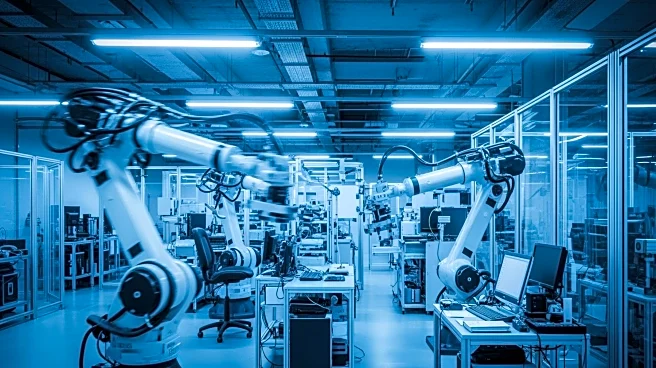What's Happening?
President Trump has expressed opposition to a recent ICE raid at a Hyundai plant under construction in Georgia, which resulted in the deportation of hundreds of South Korean workers. The raid, which took
place in September, targeted workers employed by contractors and LG Energy Solutions, Hyundai's partner in the project. Hyundai's CEO, José Muñoz, has been advocating for a resolution that would allow these skilled workers to return to the U.S. to complete the complex machinery and equipment work required at the plant. President Trump, speaking on Air Force One, indicated his support for allowing these workers to return, emphasizing the need for their expertise during the initial phases of the plant's construction.
Why It's Important?
The return of skilled South Korean workers is crucial for Hyundai's operations in the U.S., particularly for the completion of the Georgia plant, which requires specialized expertise not readily available domestically. This development could influence future foreign investments in the U.S., as South Korean President Lee Jae Myung has expressed concerns about the raid's impact on bilateral economic relations. The situation highlights the need for potential changes in U.S. immigration laws to accommodate specialized foreign labor, which could have broader implications for industries reliant on international expertise.
What's Next?
Negotiations between the U.S. and South Korean governments are expected to continue, with both sides working towards a resolution that would prevent similar incidents in the future. Hyundai's CEO anticipates a deal that would facilitate the return of the workers, while also addressing the legal framework for their employment. The outcome of these discussions could set a precedent for how the U.S. handles foreign labor in specialized industries.









